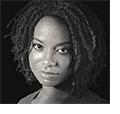By Jacqueline J. Holness
 As this week we celebrate the life and ministry of the Rev. Dr. Martin Luther King Jr., I thought it would be apropos to interview Latasha Morrison, director of operations at Gateway Central Church in Austin, Texas. She is endeavoring to continue the work of racial reconciliation through her organization Be the Bridge (beabridgebuilder.com).
As this week we celebrate the life and ministry of the Rev. Dr. Martin Luther King Jr., I thought it would be apropos to interview Latasha Morrison, director of operations at Gateway Central Church in Austin, Texas. She is endeavoring to continue the work of racial reconciliation through her organization Be the Bridge (beabridgebuilder.com).
What is Be the Bridge?
Latasha: Be the Bridge is an organization that helps equip or really to inspire the church to be a credible witness for the glory of God as it relates to racial reconciliation. We do this through our talks, providing tools, resources, seminars, training, etc. We want to build relationships with churches and Christian organizations to also do this work. We think the best way to do this is through relationships and through proximity. As we get into relationships with one another and understand one another—where friendships begin, stereotypes and assumptions begin to diminish.
What inspired you to create Be the Bridge?
Latasha: We all live pretty homogenous lives. We know that 80 percent of people hang with or have friendships with people they go to church with, and if probably less than two percent of our churches in the U.S. are multiethnic or multicultural, who are we hanging out with? I’ve met people who don’t have any friends outside of their own ethnicity. When I moved from Atlanta to Austin a few years ago, it became a burden for me to see the church so racially segregated. Rather than complain about it, I wanted to look at the problem and see what we can do to change it.
Also there was one specific incident that really affected me. I had just seen the movie 12 Years a Slave and that was a story that most people haven’t heard—the slave narrative. Some white people believe slaves were happy living in the South. I had an incident in my church where I was talking to a lady about segregation and desegregation. She basically said you know what Lincoln did to the South was horrible and some of the slaves were treated like family. That was the most absurd thing I’ve ever heard in my life, and it made me angry. This was someone in church who is a seasoned Christian. It was very hurtful, but I understood she was speaking from a place of innocence in a way. She had no idea what she was saying or the injury she was causing me. She had no idea about the atrocities of slavery.
Please explain how Be the Bridge works.
Latasha: We have a guide that includes nine sessions—a nine-step process to racial reconciliation. It’s similar to a Bible study—it has Scriptures and discussion topics. We are taking God’s Word and applying it. We have people do social events together. So we have people register their group, download the guide, and we tell them to start learning and listening. Some people may not know any people of color and in those cases, we tell them to pray for God’s guidance.
We started with 12 friends in Austin in 2015 and now our private Facebook group has grown to 7,000. We have over 200 leaders out there, and we have 150 groups nationally. Now we have Be the Bridge Atlanta, Be the Bridge Wilmington, Be the Bridge Uganda, Be the Bridge Santa Ana, Be the Bridge Kansas City, Be the Bridge Arizona, and those are just a few. It wasn’t the plan to build an organization. It was just to do the guide to help people. But there is a need out there, and during the first year, over 10,000 people downloaded the guide. So we made the organization a 501c3 and people started forming groups, modeling what we were doing.
What does a racially reconciled church look like?
Latasha: It is a church that is multiethnic, multicultural, and one that is having the conversations about systemic racism and actively doing justice. That means they are setting things right. Racial reconciliation doesn’t just mean forgiveness. It also means the dismantling of systems or the things that were done wrong. Biblical justice means turning away from or setting things right. Racial reconciliation in the church is when all races have a voice around the table and in making decisions for the church. We cannot have reconciliation without justice. People say they just want peace, but you cannot have peace without justice.
The conversations that we are having, the impact that we are having—it’s created transformation. It seems very simple, but the fruit of it shows the Lord is working through us. Anyone can be a bridge builder. You don’t have to be a part of Be the Bridge to be a racial bridge builder.
Jacqueline J. Holness, a member of Central Christian Church in Atlanta, is a correspondent for Courthouse News Service. Read more on her website (afterthealtarcall.com).




Comments: no replies